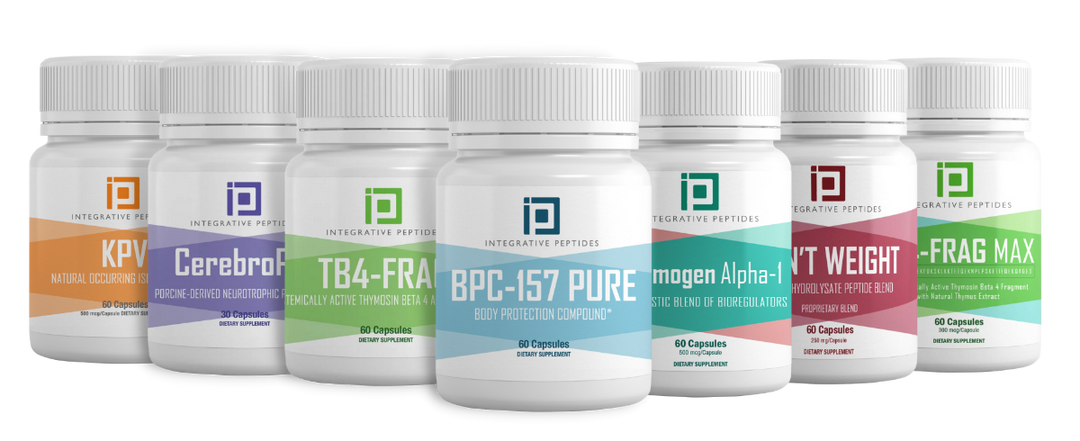
A vegetarian diet is gaining popularity, and it is estimated that around 18% of the world’s population accounts for vegetarians. People become vegetarian because of many reasons, including environmental, health, and ethical reasons. Transition to vegetarianism is seen mostly for health benefits. A plant-based diet is known to have numerous health benefits; for example, it reduces the risk of chronic medical conditions, aids in weight loss, helps in improving mental and physical health, and many more.
What is a Vegetarian Diet?
A vegetarian diet mainly consists of plant-based foods and avoiding meat consumption, poultry, and fish. However, vegetarians can eat eggs, dairy products, and other animal-based products. Depending on restrictions for animal-based products, there are many varieties or forms of vegetarianism. But overall plant-based diet is a low-fat and low-carb diet with maximum health benefits.
Role of Plant-Based Diet on Immune Function
Vegetarian is a healthy diet as plant-based foods are nutritious, which have many positive health effects. Their diet consists of fruits, vegetables, seeds, legumes, nuts, whole grains, and some eggs and dairy too. Studies have shown that a balanced plant-based diet plays a role in improving immune function. Plant-based foods contain many compounds and nutrients which are important for boosting the immune function of the body. Some of the studied immune boosters in vegetarian diets are carotenoids, flavonoids, phytochemicals (antioxidants), vitamin C, vitamin B6, vitamin E, zinc, selenium, copper, and iron.
Immunity and Illnesses
Our bodies are constantly exposed to bacteria, viruses, and other disease-causing organisms. The immune system comes into play when these invaders attack the body, and a healthy immune system is essential for combating illnesses. Without effective immunity, we would soon succumb to infectious diseases and cancer. It is proven that nutrition and lifestyle measures influence immune strength and susceptibility to infections. Our immune system consists of B-cells and T-lymphocytes (white blood cells) that produce a variety of antibodies and cytokines against foreign invaders. Nutrition plays a vital role in strengthening the immune system since childhood, and it is seen malnourished children are more prone to serious and life-threatening infections.
How Vegetarian Diet Boosts Immunity (Antibody production)?
Eating a plant-based, low-fat diet gives the immune system a boost. Vegetarians have more effective white blood cells that produce antibodies to combat foreign invaders as compared to nonvegetarians. When a foreign invader attacks the body (bacteria or virus), the immune system is activated, which starts producing specific antibodies for tackling the infection. At this point, it is essential that the body produces effective and enough antibodies to fight off the invading organism. A plant-based diet helps to effectively produce an immune response because of its excellent antioxidative and anti-inflammatory properties.
Vegetables, fruits, and other plant-based foods are rich in fiber, beta-carotene, vitamin C, vitamin D, Vitamin E, Zinc. These all play a role in fighting various illnesses. Immune cells can be damaged by free radicals, which are generated by oxidation in the body. To protect immune cells from the damage caused by these radicals, it is important to include enough antioxidants in our diet. Vitamin C, E, beta carotene, and phytochemicals are needed to balance the oxidative stress in the body, preserving optimal immune function. Zinc also boosts white blood cell activity. Studies have shown that a diet rich in antioxidants reduces the risks of cancer, which is linked to the antioxidant-related immunity boost. A plant-based diet also reduces inflammatory markers (C-reactive protein) in the body. Studies have shown improved immunity due to enhanced activity of natural killer cells in elders who are taking beta carotene and Vitamin E supplements than those without taking the supplement. Soybeans contain isoflavones also shown to stimulate natural killer cell activity.
Apart from all the direct effects on the immune system, a vegetarian diet also induces positive changes in the body that helps in reducing the risk of catching an illness. These diets are known to reduce blood cholesterol levels, reduce hypertension, lower BMI, and improve glycemic control. All these are risk factors for certain viral illnesses, including COVID-19. According to a review published in Progress in Cardiovascular Disease, plant-based foods reduce the risk of cardiovascular diseases and mortality by 40% and reduce the risk of hypertension by 34%. The low-carb diet also improves glycemic control and improves HDL, which are also crucial factors to prevent the worst outcomes of viral infections. According to a paper published in Journal Cell Metabolism, Chinese patients with Covid-19 having well-controlled blood sugars were correlated with significantly reduced mortality in those with type II diabetes. The reports from the American Heart Association also show the following statistic among patients with COVID-19 in Wuhan:
● People having cardiovascular disease show a 10.5% death rate.
● People with diabetes have a 7.3% mortality.
● People with respiratory disease have a 6.3% mortality.
● People with hypertension have a 6% death rate.
● People with cancer have a 5.6% mortality.
The Center for Disease Control and Prevention also released a report proving that people with cardiovascular diseases, diabetes, and chronic lung conditions are at higher risk of developing more serious COVID-19 infection. With all these stats, it is important to use plant-based foods in our diet as they are known to reduce the risk of all the conditions making an individual prone to more severe infectious diseases.
Role of Vegetarian Diet in Cancer
Cancer is the leading cause of death in the world, and it is estimated that half of the cancers and deaths are preventable. Diet and nutrition account for approximately 30% of all cancers in developed regions and 20% in developing regions of the world. Several research studies have been published, which showed the relationship between dietary factors and cancer prevalence. A plant-based diet has been shown to protect against 15 leading causes of death, including cancers. Various studies also proved that vegetarian diets are inversely related to overall cancer prevalence. Extensive studies on the effects of plant-based nutrition on breast, gastrointestinal, colorectal, and prostate cancer have published supporting evidence. It is believed that nutritional interventions and current medical therapies offer a significant benefit in the prevention of various cancers.
Plant foods, including fruits, vegetables, seeds, nuts, and legumes, are enriched with fiber, antioxidants, and phytochemicals that reduce cancer incidence. Also, the reports by the cancer agency of the World Health Organization implicate red and processed meats as carcinogens. Studies showed that a plant-based diet is able to suppress cancer growth and kills 20% to 30% more malignant cells. The cancer suppression effect is attributed to decreased IGF-1 (insulin-like growth factor 1) and insulin-like growth factor binding proteins (IGFBP-1 and IGFBP-2). IGF-1 is a hormone stimulating cell growth, and all animal proteins stimulate its production. IGF-1 levels in the blood are directly proportional to the risk of cancer development. By including plant-based foods and reducing animal-based foods, IGF-1 levels are reduced, thereby reducing the risk of cancer. A vegetarian diet also reduces cancers linked to obesity and insulin resistance. Soybeans and foods made from soybeans contain isoflavones, which are phytoestrogens that are protective against breast cancer. Omega-3 containing seeds also provide protection against cancer. These contain lignans, which are also phytoestrogens, modulating, and suppressing endogenous estrogen’s effects in causing breast cancer.
Obesity is another major risk factor for cancer worldwide. It is estimated that obese people have an increased risk of 13 different types of cancers, including the esophagus, colon, kidney, pancreas, and breast cancer. It can increase cancer risk in three ways:
● Obesity contributes to insulin resistance due to which cells are unable to take up glucose properly, encouraging them to divide faster.
● Obesity increases the level of inflammatory cytokines in the blood leading to chronic inflammation. This also encourages the cells to divide.
● Obesity also contributes to increased estrogen levels, which increases the risk of ovarian and breast cancer in postmenopausal women.
So reducing weight among obese people has been shown to reduce cancer risk. A vegetarian diet, as we know, helps in weight loss and maintains a healthy weight, so it reduces overall cancer risk associated with obesity. A decrease in cancer incidence has also been observed by consuming a plant-based diet rich in phytochemicals. Phytochemicals are metabolites that have excellent antioxidative properties. These phytochemicals exert chemopreventive effects by lowering oxidative stress-induced damage to DNA, protecting cells from mutations triggering carcinogenesis. This antioxidative role of plant-based foods contributes to protection against colon cancer. Other elements in a cancer-preventive diet include selenium, probiotics, vitamin B12, vitamin D, and carotenoids. The studies showed that consuming red and processed meat has been associated with an increased risk of gastric and pancreatic cancer, while the use of plant-based foods lowers the risk. This may be mediated by the nitrites used as preservatives in processed meats. However, nitrates from plant sources are not shown to increase gastric cancer risk.
Similarly, high fat intake from animal sources increases the risk of ovarian cancer by 30%. Another protein casein found in animals is shown to promote all stages of the cancer process. So, all the studies showed that vegetarians have a lower risk of cancers as compared to nonvegetarians.
Conclusion
A good, healthy, and nutritionally rich diet is a weapon against diseases. There is an increasing trend of transitioning towards plant-based foods because of numerous health benefits. A vegetarian diet is known to have many positive impacts on the body, which decreases the risks of getting severe and life-threatening diseases. These diets tend to enhance the immune response against viral and bacterial illnesses by increasing the production and effectiveness of disease-fighting cells. Plant-based foods have anti-inflammatory and antioxidative properties, both of which are needed to keep the immune system healthy and make it able to fight deadly diseases like cancer and viral diseases. People are becoming vegetarian because these diets reduce the risk of cardiovascular problems, hypertension, and cholesterol, aid in weight loss, improves glycemic control, and reduce the risk of various types of cancers. A healthy balanced plant-based diet helps to preserve the quality of life and support optimal health outcomes.
**Disclaimer**
This site and its services are for consumer educational use only. Nothing contained in this article is or should be considered or used as a substitute for medical advice, diagnosis, or treatment. Never start any diet, exercise, or supplement program without consulting your medical provider. This article and its services do not constitute the practice of medicine. Users should always seek the advice of a physician with any questions regarding their health or medical conditions. Never disregard, avoid, or delay obtaining medical advice or following the advice of a physician because of something you have seen or read on this site.
References
- https://www.pcrm.org/news/blog/foods-boost-immune-system
- https://www.scienzavegetariana.it/nutrizione/vnhl/LLimmunity.html#refs
- https://www.healthline.com/nutrition/cancer-and-diet#bottom-line
- https://jumdjournal.net/article/view/2892#B155
- https://www.pcrm.org/news/blog/diet-can-fight-diseases-linked-poor-covid-19-outcomes
- https://cebp.aacrjournals.org/content/22/2/286




Leave a comment